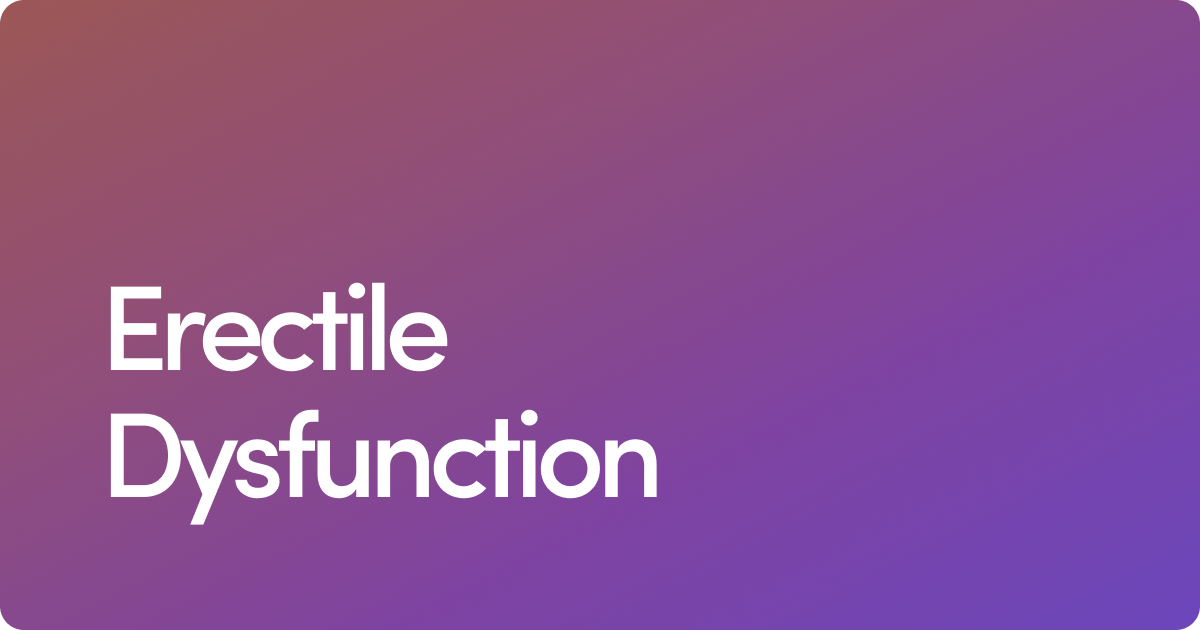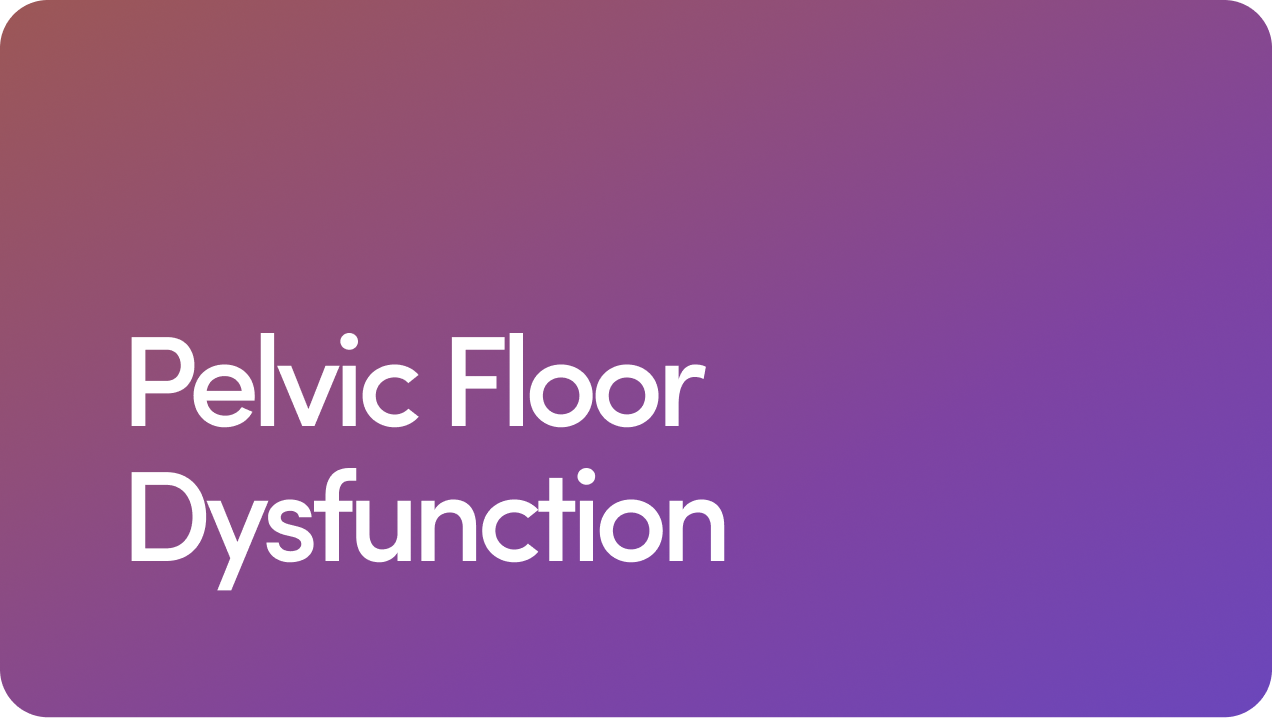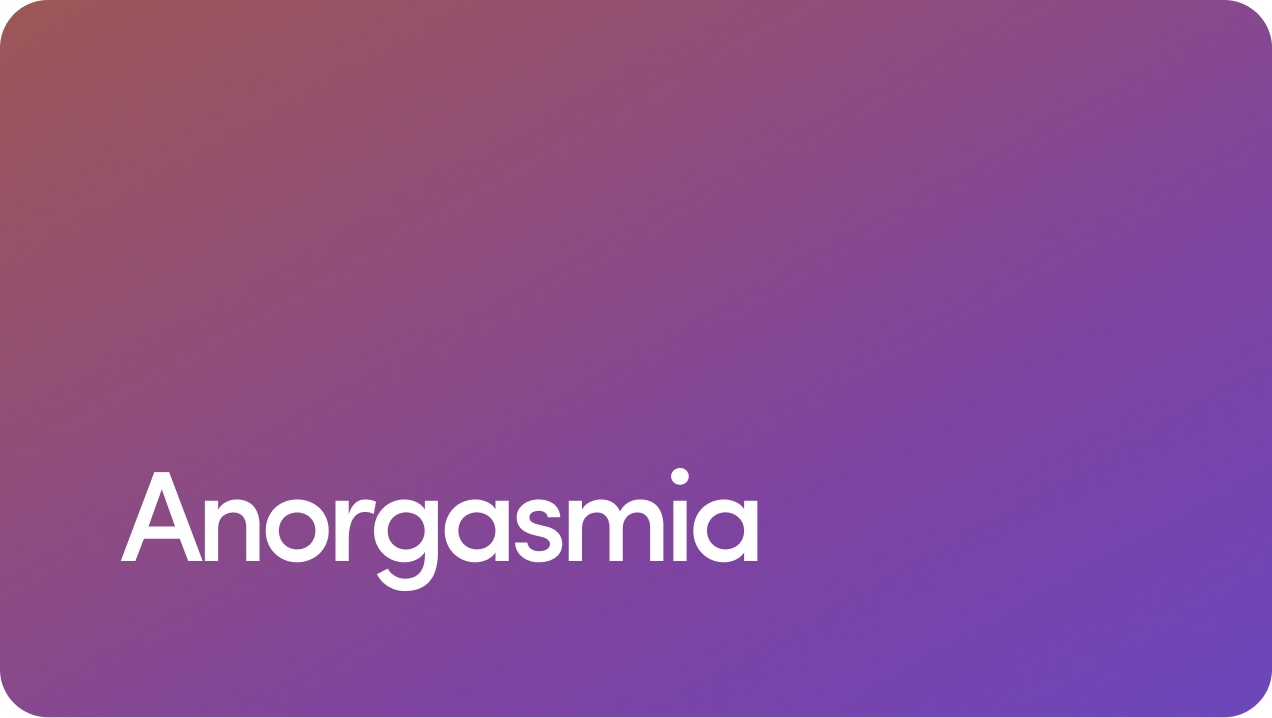Content
Enjoy sex like you used to
7 Essential Oils for Erectile Dysfunction: What Works?

Using essential oils for erectile dysfunction (ED) is considered an alternative treatment, but there’s limited scientific research supporting its effectiveness. Like CBD and acupuncture, essential oils like lavender and ylang ylang may appeal to men looking for a natural way to improve their erections. But how much difference will a few drops of essential oil make?
Below, we’ve shared the current research on essential oils for ED, explained what makes us skeptical about the research on aromatherapy and ED, and outlined a few more effective treatments for your sexual health.
If you’re here because you want to know the best oil for erectile dysfunction, keep reading to find out if there’s a better solution available.
Content
Essential oils are plant extracts typically diluted with a carrier oil like olive or coconut oil for topical application or used with a diffuser.
While you may find that using essential oils is an enjoyable and relaxing part of your routine, if you’re hoping all you need to improve your erections is a bit of sandalwood and a good diffuser, you may not get the results you’re hoping for.
At best, research shows that essential oils may benefit general wellness. For example, several essential oils are purported to have antioxidant properties, which may help reduce oxidative stress in the body and protect against inflammation.
Essential oils used in aromatherapy might also support mental health by helping to reduce feelings of stress and promote relaxation.
And while mental health and sexual health are connected (there are psychological causes of ED, for example), there isn’t any high-quality research on the role of essential oils for erectile dysfunction treatment in humans.
Of the few studies available, most are tiny in size and conducted on animals rather than humans. That means the evidence is thin, and we also don’t have any conclusive info on basics like where to apply essential oils for erectile dysfunction.
We’re clearing all of this up ahead of time because if you’re curious about the benefits of any of the popular essential oil ingredients below, you’ll need to take them with a grain of salt.
The purported benefits of the essential oils below include higher sexual desire, lower anxiety, and improved testosterone production. These benefits may indirectly lead to improved erectile function, but much more research is needed to know for sure.
If you poke around the internet, you’ll find the following listed as the best essential oils for erectile dysfunction and male stimulation:
Cinnamon
Cloves
Ylang ylang
Rose
Ginger
Lavender
Basil
1. Cinnamon
Some animal studies have shown that inhaling cinnamon essential oil (and its main compound, cinnamaldehyde) may reduce anxiety.
In theory, this could be helpful if you struggle with sexual performance anxiety, but the researchers didn’t test this specifically, and even if they did, we wouldn’t be able to know for sure if this effect extended to humans.
One 2019 study did aim to better understand cinnamon essential oil’s role in erectile function in rats and humans and found some promise for treating diabetes-related ED, but the study was small, looked at injections rather than aromatherapy, and noted that more research needs to be done in this area to draw any real conclusions.
2. Cloves
Cloves haven’t exactly rocketed to the top of the ED treatment oil pyramid, but one study from 2004 did find that an ethanolic extract of the clove flower triggered a “significant and sustained” increase in the sexual activity of normal male rats.
The authors tentatively called it a point for the traditional view of cloves as an aphrodisiac, but human studies would offer a much more valid point.
Beyond that, a more recent 2020 study found that clove essential oil could help improve diabetes-related ED in rats, but again, the results haven’t been duplicated in humans.
3. Ylang Ylang
Ylang ylang essential oil doesn’t affect your hormones or make your penis grow, but some cultures have used ylang ylang to create feelings of confidence and euphoria and reduce anxiety, particularly when it comes to sexual anxiety.
It is also traditionally thought to help with depression and high blood pressure, two conditions that may cause ED, but we need more evidence here to know whether it’s a truly effective treatment.
4. Rose
Rosa damascena, better known as damask rose, has been shown to help with depression and aid in relaxation, which could indirectly improve ED symptoms.
One very small human study found that rose oil might improve psychological ED. In it, a group of men with depression and ED due to selective serotonin reuptake inhibitors (SSRIs) gained better erectile function after using the essential oil.
However, we’ve yet to see these results reproduced. In other words, it looks good on paper, but can they do it twice?
5. Ginger
As essential oil ingredients go, ginger’s sexual benefits might have the widest base of support. Some research has suggested that ginger can improve testosterone production and may have antioxidant benefits. Other studies — once again limited to rats — have suggested that it can improve sperm quality.
Ginger has also been used in combination with a few other compounds to manage certain types of erectile dysfunction in rats.
However, the majority of the research has looked at eating ginger, not using ginger root essential oil, which may produce entirely different results.
6. Lavender
There isn’t any significant evidence about lavender oil for ED in the world of medicine, but we would point you to the very thin connection between lavender and mental health.
Lavender is sometimes mentioned as a natural remedy for anxiety, which could include performance anxiety and other psychological issues that may cause sexual dysfunction. However, no studies have yet tested the theory directly.
In one interesting study, researchers tested how certain odors affected penile blood flow in a small group of men. The combined scent of lavender and pumpkin pie increased blood flow to the penis the most (by 40 percent). However, all 30 odors they tested boosted penile blood flow at least a small amount, so the results leave us with more questions than answers.
7. Basil
Basil may be delicious on pizza, but is it an effective herb for ED? A 2013 study found a link between basil consumption and improved testicular function in male rats with testicular toxicity induced by cadmium.
Basil is also high in vitamin K, which helps to protect your cardiovascular health. Because erections are all about proper blood flow to the penis, your cardiovascular system is an essential component of your sexual health.
All that said, the promise here seems to lie in eating basil. There’s no real evidence that applying or inhaling basil oil can help with erectile dysfunction.
Although there aren’t any conclusive studies that show a link between essential oils and better erections, there are several proven, science-based treatments for ED available.
They include:
ED medication
Therapy
Lifestyle changes
ED devices and tools
ED Medication
Some of the most common and effective ED medications are Viagra® (sildenafil) and Cialis® (tadalafil).
These medications are PDE5 inhibitors — vasodilators that work by increasing blood circulation to your penis and making it easier to get and maintain an erection.
While they can potentially cause side effects and drug interactions, problems are rare when they’re used as directed. On that note, all require a prescription from a healthcare professional who can help you determine what ED medication is right for you and the most effective way to take it.
Therapy
Because ED medications work by increasing blood flow, they’ll only cause erections when you’re actually aroused — which means sexual desire is key. And one of the things blocking sexual desire can be your own brain.
Mental health conditions like depression, anxiety, and sexual performance anxiety can all be potential triggers for psychological ED. In many cases, the best way to deal with these problems is therapy.
Lifestyle Changes
Making a few small changes to your habits and lifestyle can often improve your sexual performance and reduce the severity of ED — a topic we’ve covered in our list of natural ways to protect your erection. In short, make sure you get enough sleep and exercise, eat a healthy diet, and definitely quit smoking to improve your sexual health and overall well-being.
ED Devices and Tools
There are various devices, procedures, and tools for ED, ranging from vacuum erectile devices (aka penis pumps) to penile implant surgery for more severe cases.
You can also try sex toys to help improve your erections, such as cock rings and vibrating penis rings.
If you’re thinking about using essential oils for male stimulation or better erections, remember the following:
Research on essential oils for ED is lacking. While the studies above may look promising, they have several weaknesses. Although some look at certain aspects of sexual function, none specifically address the effects of essential oils on erections or sexual performance. The studies are also tiny, with very few test subjects, and mostly conducted on animals.
Essential oils may still hold some value. Some essential oils might benefit your sexual performance. For instance, lower anxiety, better blood flow, and increased testosterone could in theory result in better erections.
There are better options available. If you want science-backed results, get advice from a healthcare provider about the latest ED treatment options.
We know it can be hard to talk about sexual health issues, but ED is more common than you think. It affects between 30 and 50 million men in the United States alone. Determining the cause of your ED symptoms is essential to solving the problem. After all, ED can be psychological, it can be a nervous system issue, it could be related to testosterone levels, or it could be a vascular issue, among other causes.
Ready to do something about it and get answers? Reach out to speak with a healthcare provider today.
21 Sources
- Aazza S, et al. (2014). Anti-oxidant, Anti-inflammatory and Anti-proliferative Activities of Moroccan Commercial Essential Oils. https://journals.sagepub.com/doi/abs/10.1177/1934578X1400900442
- Ali B, et al. (2015). Essential oils used in aromatherapy: A systemic review. https://www.sciencedirect.com/science/article/pii/S2221169115001033
- Alves-Silva J, et al. (2021). The Role of Essential Oils and Their Main Compounds in the Management of Cardiovascular Disease Risk Factors. https://pmc.ncbi.nlm.nih.gov/articles/PMC8227493/
- American Diabetes Association. (2023). All About the Benefits of Basil. https://diabetesfoodhub.org/blog/all-about-benefits-basil
- Banihani S. (2018). Ginger and Testosterone. https://www.ncbi.nlm.nih.gov/pmc/articles/PMC6316093/
- Farnia V, et al. (2015). Rosa damascena oil improves SSRI-induced sexual dysfunction in male patients suffering from major depressive disorders: results from a double-blind, randomized, and placebo-controlled clinical trial. https://www.ncbi.nlm.nih.gov/pmc/articles/PMC4358691/
- Ferrini M, et al.. (2015). Treatment with a combination of ginger, L-citrulline, muira puama and Paullinia cupana can reverse the progression of corporal smooth muscle loss, fibrosis and veno-occlusive dysfunction in the aging rat. https://www.ncbi.nlm.nih.gov/pmc/articles/PMC4578663/
- Gholami-Ahangaran M, et al. (2021). A systematic review on the effect of Ginger (Zingiber officinale) on improvement of biological and fertility indices of sperm in laboratory animals, poultry and humans. https://www.ncbi.nlm.nih.gov/pmc/articles/PMC8464296/
- Goswami S, et al. (2013). Efficacy of Cinnamomum cassia Blume. in age induced sexual dysfunction of rats. https://www.ncbi.nlm.nih.gov/pmc/articles/PMC3930108/
- Hirsch AR, et al. (2014). Human male sexual response to olfactory stimuli. https://aanos.org/human-male-sexual-response-to-olfactory-stimuli/
- Khaki A. (2015). Effect of Cinnamomum zeylanicumon on Spermatogenesis. https://www.ncbi.nlm.nih.gov/pmc/articles/PMC4376985/
- Koulivand P, et al. (2013). Lavender and the nervous system. https://www.ncbi.nlm.nih.gov/pmc/articles/PMC3612440/
- Lee M, et al. (2017). The effects of aromatherapy essential oil inhalation on stress, sleep quality and immunity in healthy adults: randomized controlled trial. https://www.sciencedirect.com/science/article/abs/pii/S1876382017300951
- Mahboubi M. (2016). Rosa damascena as holy ancient herb with novel applications. https://www.sciencedirect.com/science/article/pii/S2225411015000954/
- National Institute of Diabetes and Digestive and Kidney Diseases. (2017). Definition & Facts for erectile dysfunction. https://www.niddk.nih.gov/health-information/urologic-diseases/erectile-dysfunction/definition-facts
- Nguyen L, et al. (2022). Anxiolytic-like Effect of Inhaled Cinnamon Essential Oil and Its Main Component Cinnamaldehyde in Animal Models. https://pmc.ncbi.nlm.nih.gov/articles/PMC9693619/
- Onder A, et al. (2019). Evaluation of relaxant responses properties of cinnamon essential oil and its major component, cinnamaldehyde on human and rat corpus cavernosum. https://pubmed.ncbi.nlm.nih.gov/31408283/
- Sakr S, et al. (2013). Effect of Ocimum basilicum extract on cadmium-induced testicular histomorphometric and immunohistochemical alterations in albino rats. https://www.ncbi.nlm.nih.gov/pmc/articles/PMC3713276/
- Tajuddin Ahmad S, et al. (2004). Effect of 50% ethanolic extract of Syzygium aromaticum (L.) Merr. & Perry. (clove) on sexual behaviour of normal male rats. https://www.ncbi.nlm.nih.gov/pmc/articles/PMC534794/
- Tan L, et al. (2015). Traditional Uses, Phytochemistry, and Bioactivities of Cananga odorata (Ylang-Ylang). https://www.ncbi.nlm.nih.gov/pmc/articles/PMC4534619/
- Yilmaz-Oral D, et al. (2020). The beneficial effect of clove essential oil and its major component, eugenol, on erectile function in diabetic rats. https://pubmed.ncbi.nlm.nih.gov/32352181/
Editorial Standards
Hims & Hers has strict sourcing guidelines to ensure our content is accurate and current. We rely on peer-reviewed studies, academic research institutions, and medical associations. We strive to use primary sources and refrain from using tertiary references. See a mistake? Let us know at [email protected]!
This article is for informational purposes only and does not constitute medical advice. The information contained herein is not a substitute for and should never be relied upon for professional medical advice. Always talk to your doctor about the risks and benefits of any treatment. Learn more about our editorial standards here.
Lynn Marie Morski, MD, JD
Basic Information
Full Name: Lynn Marie Morski, MD, JD
Current Role at Hims & Hers: Medical Advisor
Credentials & Background
Education:
Juris Doctor - Thomas Jefferson School of Law, 2014
Doctor of Medicine - Saint Louis University School of Medicine, 2005
Training:
Primary Care Sports Medicine Fellowship - University of Arizona, 2009
Family Medicine Residency - Mayo Clinic - 2008
Medical Licenses:
California, 2010
Board Certifications:
Affiliations & Memberships:
Experience & Expertise
Specialties & Areas of Focus:
Mental Health, Primary Care, Psychedelic Medicine
Years of Experience: 11
Previous Work Experience:
Physician & Subinvestigator/Clinician Rater - Kadima Neuropsychiatry Institute, January 2025–
Investigator - Elite Clinical Network, June 2024–
Physician - Veterans Administration, 2010–2019
Publications & Research:
Morski LM. Invited Commentary on Psychedelic Therapy: A Primer for Primary Care Clinicians. Am J Ther. 2024;31(2):e183-e185. https://journals.lww.com/americantherapeutics/citation/2024/04000/invited_commentary_on_psychedelic_therapy__a.9.aspx
Grover, M., Anderson, M., Gupta, R., Haden, M., Hartmark-Hill, J., Morski, L.M., Sarmiento, Dueck, A. Increased osteoporosis screening rates associated with the provision of a Periodic Health Examination. J Am Board Fam Med November-December 2009 vol. 22 no. 6 655-662. https://www.jabfm.org/content/22/6/655.long
Morski, L.M., Bratton,R.L. and DeBrino, G. Older Man With Fever and Tender Rash. Consultant, 2009, May 49(5). https://www.consultant360.com/content/older-man-fever-and-tender-rash
Contributions to Hims & Hers
Medical Content Reviewed & Approved:
List pages or topics the expert has reviewed for accuracy
Quotes or Expert Insights:
Mental health care isn’t a luxury, it’s a fundamental part of overall well-being. We all deserve mental health support that’s evidence-based, accessible, and affordable.
Media Mentions & Features:
A User’s Guide to Therapeutic Psychedelics: From magic mushrooms to MDMA and ayahuasca to ibogaine—everything you need to know before (and after) taking the leap - Oprah Daily, May 6, 2024
Personal & Humanizing Details
Why I Practice Medicine:
I'm passionate about helping people access reliable, affordable healthcare—without stigma or unnecessary barriers. Everyone deserves to feel informed and empowered when it comes to their health!
Hobbies & Interests:
Salsa dancing, drumming, surfing, scuba diving, triathlons
Contact & External Profiles
Professional Website or Profile: https://www.morskiconsulting.com/, https://psychedelicmedicineassociation.org/
Related Articles
Related Conditions
 Erectile Dysfunction
Erectile Dysfunction
 Premature Ejaculation
Premature Ejaculation
 Low Testosterone
Low Testosterone
 Retrograde Ejaculation
Retrograde Ejaculation
 Pelvic Floor Dysfunction
Pelvic Floor Dysfunction
 Anorgasmia
Anorgasmia